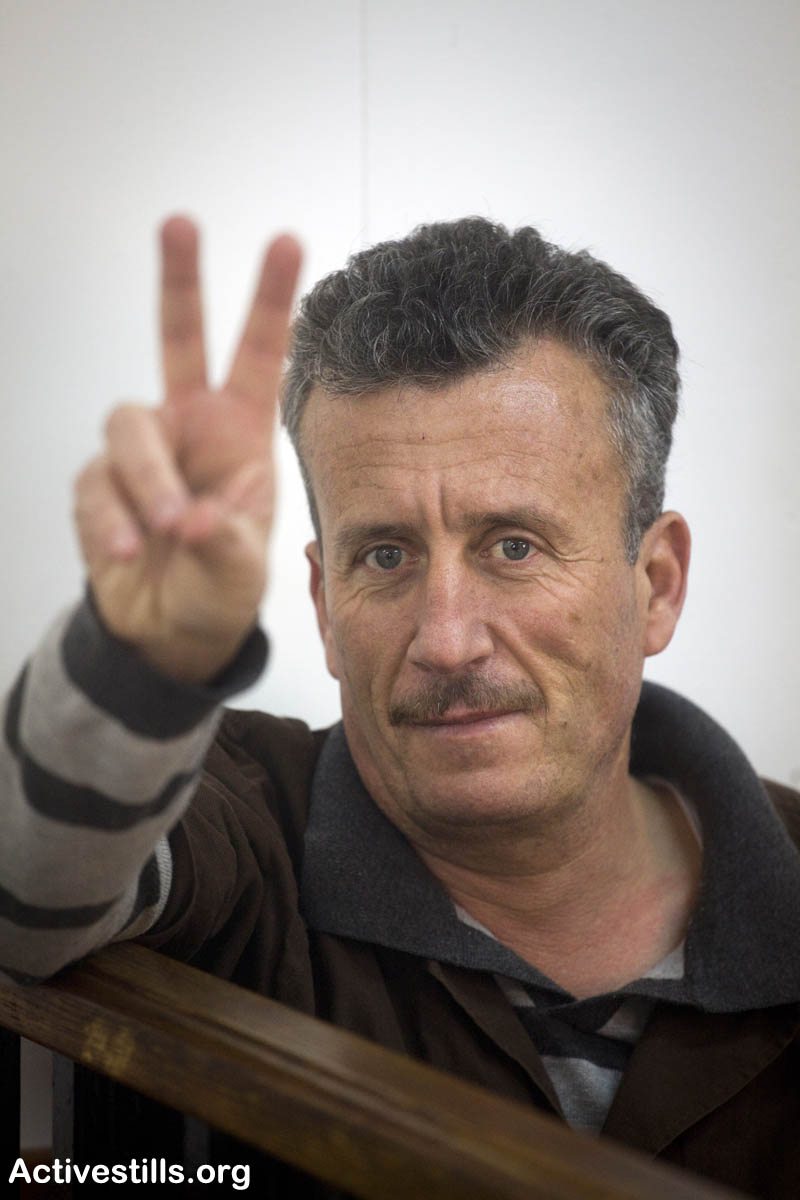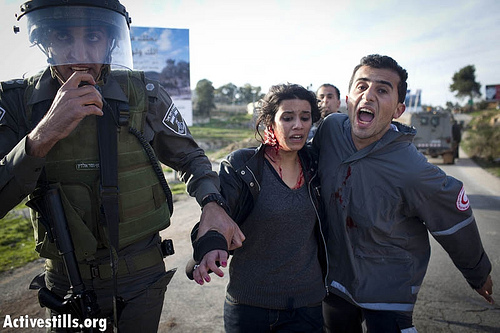Tag: An Nabi Saleh
-
Palestinian activist to judge: I do not recognize your rules
20 February 2012 | Popular Struggle Coordination Committee Bassem Tamimi from Nabi Saleh testified yesterday as part of the defense’s case in the ongoing trial against him. Tamimi, suspected of protest related charges, was arrested on March last year, and remains in detention since. After 11 months in an Israeli jail, Bassem Tamimi, a prominent…
-
13 injured in Nabi Saleh during weekly non-violent protest
3 February 2012 | International Middle East Media Center During the weekly non-violent protest in the village of an-Nabi Saleh on Friday several injuries were reported including that of a French citizen who was struck in the neck by an Israeli projectile. The young woman, reported to be named Amessi, was struck in the neck,…
-
Messages of support to Mustafa Tamimi’s family
1 February 2012 | Life on Bir Zeit Campus Martyrs are not numbers. It is essential for us and for supporters of the Palestinian cause to remember the stories behind the names and numbers. For this reason, we offering this space as a platform where your voices will be heard regarding the first martyr the…


